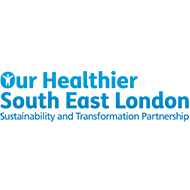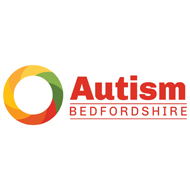“Travelling by Train – the journey of an autistic mother” is the title of my book, which is due out in Spring. I have published the first chapter here as a little teaser.
If you can’t wait or have any questions, please drop me an email.
Chapter 1
We were driving somewhere and I looked across at him, as I often do. The topic of our conversation escapes my memory now but travelling always made a good picnic rug to spread our chatting across. It could have been friendly and jovial banter or a flat discussion over our destination but it was one of those moments when the realisation of how lucky we both were to be there at all struck me, as it often does, with a flash of amazement and a long, cool, river of humility.
He was sixteen at the time and the likeness to Mike, his father, stretched across this adolescent’s entire presence from his facial appearance to his build and occasional, very slight, almost unnoticeable mannerisms. Had nature been at war with nurture over him, then the victor was obvious in everything about the son of the man I’d loved so intensely. A different kind of writer would have described the changing light across Edmund’s strong Arabic features, the music from the van’s CD player and the way the landscape changed as our journey ate up miles of motorway while daylight faded into dusk. But I’m not a person to draw vivid pictures of something I can’t remember. He was there, my son; that was the most important thing.
Most people get those moments. They see a universe in a blink; an instant where a hundred thoughts and pictures flash a fast rewind, covering years of similar situations. In German, they say augenblick, meaning, literally, eyes’ view. The almost audible slap of celluloid against the mechanism of the cine-projector as the reel comes to an end snaps us back into the present. The roll of film is again stored away in the metal, mental tin of our memories.
We were probably taking the dogs somewhere different that day. They were safe in a pen behind the rear passenger seats. In its former life, it was a breakdown recovery van, bright yellow and easy to find in a car park. It still had a panel of dashboard buttons alluding to its days of noble rescue. To steal a modern day expression, it was my lifestyle option. Good for a keen camper and dog owner. Vandelion, as I called it, could be easily swept clean with a yard brush and mop. There was a deficit of crevices to acquire dog hair and other debris that grind into the velvety upholstery of modern vehicles. Like my house, the van was rarely clean and hardly ever tidy. It shouted fridge magnet humour: dull women live in tidy houses. Perhaps interesting ones were, by default, middle aged and drove bright yellow vans. Women who liked flicking the switch to turn on the imaginary overhead hazard lights to check they were still present, correct and twirly. When I first bought it, a favourite prank was to show friends those dashboard lights, where each one had a different picture to illustrate its former function. This one jump starts cars with flat batteries, this one operates the rear hazard lights and this one is for the overhead hazard lights, look, I’d say, pointing to the roof then laugh like a seven year-old schoolboy when they checked.
My son, how different would our lives had been if you, you giant lump of a teenager with your clumsy walk and dinner plate hands, had been taken away? That was the thought which zigzagged across my consciousness that day. It often did. The thought was there and in a flash was gone again. What kind of family would he have been given to? Would they have been ‘respectable’, middle class professionals or an ordinary working couple, infertile and desperate for a baby of their own? Would they have been somehow better equipped to carry on fighting the unjust system which almost took my boy away? Would they have been listened to more seriously than I was when he began to have problems at school? Maybe he would have got his Asperger’s syndrome diagnosis earlier. Maybe they would. Or perhaps his later difficulties would have been attributed to his early childhood traumas and blamed, in part, on the mother who wouldn’t give up.
Eddy, or more formally, Edmund Robin Alexander was born at home, 25th October, 1993. My waters broke to the Eagles’ song, Hotel California. Up ahead in the distance, I saw a shimmering light, it went. He was a strong, solid baby of eight pounds, six ounces and didn’t look like one of mine. His red face and thick, dark, hair was a sharp contrast to my older two, who had been born blond, fair skinned and much smaller. They’d a different father and although I should have expected my new baby to look different, his red face and dark hair was quite a surprise but he was handsome. We spent the rest of the day dozing on the sofa Edmund had been born on. More than once, I looked down at him to check he was real and asleep in my arms. On day three, when my milk came through and hormones went crazy, the familiar tearful day came I’d experienced with the older two children. I sat on the edge of my bed, cradling Edmund and drowning him with tears. I thought of my other two children, living with their father and how much I missed them. As I rocked him, I looked down at the peaceful baby and said nobody is going to take you away from me.
From the birth of Edmund, it was clear that Mike had no idea how to handle a new baby and would often make his son cry. It was his first child and his experience of babies was extremely limited. He often played with him roughly, throwing him up in the air, catching him and twirling him around. Edmund would scream in distress but Mike ignored my pleas to stop. He would, when I said Eddy didn’t like it, just say rubbish, he loves it. The ceilings in our late Victorian house were very high and Mike interspersed the throwing game by holding Edmund above his head and twisting him from side to side. As much as I was uncomfortable with this, I tried to balance showing Mike how to hold and play with such a young baby while supporting his interactions with him. It had been clear from Ed’s very earliest days that Mike was finding fatherhood a struggle. He seemed to have no concept of appropriate handling, especially when his son cried and seemed almost jealous of the attention he needed from me. During the night feeds, Mike would hold me tightly, making it difficult to attend to the baby’s needs.
Edmund was so very handsome. His dark skin and hair were admired and remarked upon by people we met in the street. The first few weeks went by and a routine started to form. I enjoyed taking him out in the late autumn weather. More than once, a passer-by would say, He’s going to grow up to be a right heartbreaker, that one. I didn’t have to wait very long.
It was December 4th, a Saturday evening, when Edmund fell ill. He was five weeks and five days old. For a few days, I’d picked him up in the morning from his cot and found his nightclothes and the bedding around his body, damp. In himself, Eddy seemed well enough, although he had been bringing back more feed than usual. My plan was to keep an eye on him over the weekend and take him to see the Health Visitor on Monday afternoon. Terran and Holly, my older two children, who normally lived with their father, were with us that Saturday. We had all been out with Dave, Mike’s younger brother who was visiting from Australia.
That night, I went upstairs to run a bath for the baby. Holly, who had enjoyed the months leading up to her brother’s birth, liked to wash and play with him in the bath. Before he had been born, the two of us used to bathe together on the nights she and Terran stayed over. Holly was a sweet and very bright little girl and she liked to wash my tummy. I’m washing the baby, she would say and then talk to Eddy through my navel, as though it was some kind of human microphone. She came with me to undress and get in the water while I went down to fetch him. Mike and 10 year-old Terran were downstairs with the baby while I settled Holly in the bath. Mike had been vigorously jiggling and trying to pacify his crying baby son, with no luck at all. Ed calmed as soon as I took him from his father’s hands.
I took Eddy upstairs, where Holly was playing in the bath. I knelt on the floor to undress the baby. The neck opening on his sweater was very tight, which made it difficult to remove. It was when I pulled it over his head that he went limp. He turned into a rag doll, with no muscle tone at all. His complexion had turned grey and his skin suddenly clammy. Had his breath not been coming in loud rasps, anyone would have thought he was dead. Time slowed to a crawl. Ed was clearly unwell. I put him in the bath with his sister, splashing him with water, thinking he would revive. Edmund was unresponsive. It was incredibly difficult balancing a lifeless, larger than average five week old baby, on my forearm but I carefully lifted him out of the water and onto a bath towel. His bowels opened spontaneously and a feeling of horror thumped me in the stomach. My actions, thoughts and feelings were at war, pulling away from each other yet sucked, at the same time, in a tornado of fear and terror. To this day, the memory of it causes feelings of nausea and heart palpitations.
My daughter, just about to turn five, was happy in the bath, unaware of my concern for her little brother. She could have been a continent away, on a different planet or another world. Her splashes and laughter were a brutal contrast to the limp baby in my arms. Wrapping a clean towel around Edmund’s body, I put him on the bathroom floor, safely out of the way. I thought about Mike and how he broke everything. Now he had broken his baby. I shouted for Mike. He came upstairs and took the baby from me. Even he could see something was dreadfully wrong. He passed Edmund back and went to phone a doctor. We had no home phone so it meant walking to a public telephone box. He came back saying there was no answer so he had called the emergency service and an ambulance was on its way. Holly had dried and dressed herself in pyjamas by the time it arrived. Edmund had revived a little, gaining some colour and had stopped the awful rasping breathing. As a precaution, the paramedic suggested taking him to hospital to be checked over. Mike took Terran and Holly to his mother’s house for the night, thinking we all would spend the next day together. I dressed Edmund in a snowsuit to keep him warm and held him in my arms in the back of the ambulance. Why were there no child seat restraints? What if the ambulance crashed? How was a baby, held only by its mother ever going to be safe should there be an accident?
At the hospital, nothing was making any sense. Everything was surreal, confusing. Edmund was naked on the examination table. Ludicrously happy cartoon picture curtains separated us from the chaos of children’s accident and emergency and the kid with broken bones sticking out of his leg. Eddy’s high pitched squeal was piercing, painful to hear, heart stopping. Was this my baby? Edmund, my Edmund, wonderful and dark and handsome, was making noises from some black and white Hitchcock movie. It was unreal.
He was thoroughly examined by a female doctor who never once looked at me. Her questions were relentless and routine. How long had he been ill? – About three or four days. Had he been vomiting? – No, just bringing back a little more feed than usual. Had he had any knocks or bumps or been dropped? – No, but he had somehow managed to flip himself from his tummy to his back a few days earlier and knocked his head on the floor. She rejected that without turning her head. A baby of that age wouldn’t be able to do that. Yet he had, twice. Hadn’t I noticed his fontanel was raised? – Yes, but I didn’t know this was unusual. Edmund had a lot of features alluding to his mixed race background. How was I supposed to know what was and wasn’t normal? Having three children made nobody a paediatrician any more than having monthly periods turned a woman into a gynaecologist.
Although it was, by then, late at night, children’s A&E was packed with hurt and ill youngsters. Bright lights, noise, blood, crying children and weeping parents were everywhere. It was somewhere between an abattoir and a fairground. Edmund needed further tests. We had to stay. I was given a fold-out bed to sleep on, in a goldfish bowl cubicle, which had glass walls behind more ridiculous curtains. These only partially kept us from the nasty, glaring, lights of ward E37 and the horrible world beyond. Mike went home. There was no space for both of us. The couple in the adjacent bay also had a baby son. It was a relief to have somebody to talk to who didn’t pound me with relentless questions. They told me their little boy, who was around the same age as Edmund, wasn’t feeding properly and was failing to gain weight at home. This was their second or third stay in hospital with him. Worry, and the sound of other babies crying, made it impossible to sleep. When he returned the next day, after taking Terran and Holly home to their father, he brought clothes and a toothbrush with him. It looked as though we were going to be there for some time.
The next few days brought mixed news, some bad and some good. It was contradictory to hear his condition was life threatening but his life wasn’t at risk. It made no sense. We were moved to a large, private room. Between the Monday after Edmund’s admission and the following Thursday, he was subjected to more tests. He had to be x-rayed. They were checking for broken bones. I couldn’t understand why they thought he might have any. Mike held Edmund as I couldn’t bear to.
The ultrasound scan was taken through Edmund’s fontanel, the ‘soft spot’ at the top of his head. He wriggled and cried until Dr Jaspan, the radiographer, suggested I feed him. It was very uncomfortable having a stranger so close to my breast while I held my baby still. For the MRI scan, Edmund had to be sedated to keep him absolutely still. It brought back memories of the incident in the bathroom when he was unconscious and grey. He looked tiny and everything was tragic yet somehow comical. My baby, on an idiot supermarket conveyor belt leading him into the open, washing machine mouth of the scanner as it took pictures of his brain, slice by slice. I thought about Trina, a friend, whose baby son had died at six months old. As I watched Eddy slowly move into the MRI scanner, I thought about Trina’s baby, going into the greedy mouth of the furnace, at the crematorium, only without the oblong, wedding cake, coffin to hug and hold him. Somebody must have ripped her open and torn out her soul when that tiny box, with her dead baby in it, went behind the curtain. She had wailed, out loud, filling the gap between the silence in the room and quietly weeping people. She had sung the unspoken, wordless, song that now filled my head but couldn’t escape from my throat, my soul, my heart.
The staff were very kind. There was a washing machine for parents’ use, allowing me to wash our clothes. There was also an endless supply of clean nappies and a cupboard full of children’s clothing we could borrow. Mike brought in my camera and I have a photograph of Edmund dressed in one of the romper suits he looked cute in. It said ‘Little Artist’ on the front. We had use of a big blue, coach built Silver Cross pram we used to rock him in on the ward and transport him to other departments for the endless tests and x-rays. We also took him for walks in and around the hospital and grounds. Even very young babies needed fresh air. Grasping at anything that could establish a new kind of normal, my focus was narrowed to caring for Eddy.
Edmund was found to have bilateral subdural haematomas; bleeding under the skull, on both sides of his brain. Jonathan Punt, a well known neurosurgeon, was brought in to carry out the treatment. Edmund would need to have a syringe inserted through his fontanel to have the excess fluid drawn off at least every other day. Taps, they called them. I wasn’t allowed to be with him for the treatment.
Edmund wasn’t going to be sedated for the procedure. He needed to have the hair from the front of his head shaved and be immobilised by wrapping him tightly in a blanket. Somebody would have to hold him still and it was to be Mavis, the nurse allocated to us a key worker. She lifted Ed out of my arms and took the baby into a treatment room. I waited in the corridor and it was the only time I’d cried since we arrived at the hospital. His shrill screams pierced my numbness. When he was brought out, I saw through the door the trolley which held the surgical tools. On it were five full specimen bottles of blood stained fluid. How could all of that have come from one baby head? The bones on his skull were clearly visible and his fontanel was collapsed. He had two stitches, one on either side of his head. Stiff with blood, they looked like the knots in barbed wire. His scalp was stained yellow from the iodine and he looked tiny, fragile. I cannot remember how many times he had the treatment but the fluid they drew off grew less each time. Had it not worked, he would have needed shunts put in his head to draw the fluid away from his brain. These would have needed replacing as he grew.
Time, in hospitals, works very differently to that of the world outside; never really dark and the temperature on the wards never drops, the way it does during the night at home. It was only by the ward orderlies letting themselves into our room at the same time every morning and routine temperature checks that let us know it was another day. We knew night was creeping in when the external windows slowly turned to mirrors, reflecting everything in the room.
I’d been away from the room but not for long, so it was a surprise to see Mavis sitting there. Dr Terence Stephenson, the Consultant Doctor, was standing by her side. They were solemn and motionless; they could have been a Victorian couple posing for a photograph. It was startling. They told me Edmund had a non accidental injury. I was confused. In my mind, it was pretty much the same as a non event. If he hadn’t had an accident, then he was ill, would get better and I could take him home. Why then, were they saying the police and Social Services were in a room opposite, waiting to interview me? Stunned and with no time to prepare or change my clothes from the old T-shirt I was in to something tidier, I took a long glance across at my son and crossed the corridor. The floor, it felt, had turned into a river racing along the bottom of a canyon.
Years later, Holly reminded me of something I put into a letter to her, that life is like a train journey and we are the train. People join us at different stations along the route and enrich our lives in some way. They are brush strokes in our lives. We are also part of their journey, passengers on their life train. Each experience is an exquisite interaction, which may last for twenty years, or thirty, a whole lifetime or no time at all but everything takes us from where we have been towards the people we are to become. The events over the following months were to become one of those times.









